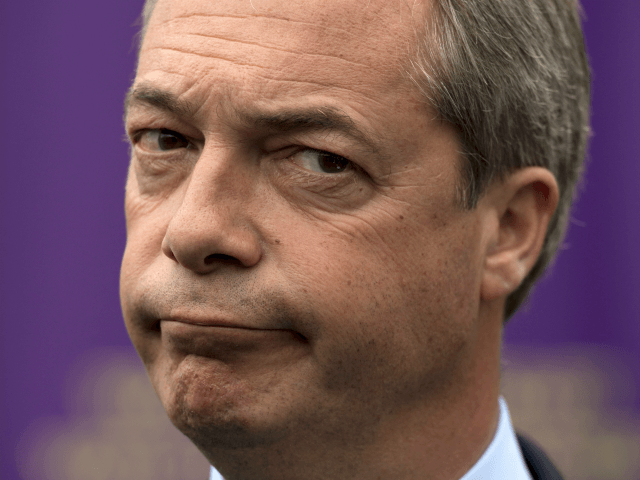UKIP MEP Nigel Farage has mocked and criticised President of the European Parliament Antonio Tajani for claiming that the European Union brought down Nazism and Soviet Communism, regimes which fell years before the Maastricht Treaty founded the bloc.
“I don’t think there are any people here nostalgic for Nazism or the Communist dictatorship of the Soviet bloc — two ghastly devastating political system which caused terrible wounds for Europe.
“Thank God these two dictatorships have vanished thanks to the European Union,” Mr Tajani said in the European Parliament in Strasbourg, France, on Wednesday.
Irritated that his statement was greeted with laughter from Members of European Parliament, the Eurocrat said: “It’s really not a laughing matter! It’s really not a laughing matter!
“You should respect the ideas of other people even if you don’t agree with them.”
To claim the EU brought about the downfall of Nazism and Soviet Communism isn't only laughable, it's ungracious and deeply insulting to the USA. EU Nationalists are trying to rewrite history. pic.twitter.com/spsKtNXiGe
— Nigel Farage (@Nigel_Farage) October 24, 2018
“Laughter is the last refuge of the stupid,” the EP President added.
“You should learn to respect other people if you want respect yourself, Mr Farage,” the Italian politician continued, directing his comments to the former UKIP leader and architect of Brexit, who was also laughing, “because that’s what democracy is all about.”
“You seem to be nostalgic for dictatorships yourself if you don’t respect other people,” he sniped.
Brushing aside “personally insulting” comments and wondering aloud whether the Eurocrat had “a problem with [his] temper”, Mr Farage addressed the Parliament, saying: “We do seem to be struggling a little bit this morning with history.
“To claim, Mr Tajani, that the European Union brought about the downfall of Nazism and Soviet Communism isn’t only laughable but it very ungracious and deeply insulting to the United States of America who paid massive sacrifices so that Europe could be free, twice in the twentieth century, and to a lesser extent the United Kingdom’s 30,000 British dead in Italy will attest.”
The bloc’s first incarnation was the European Coal and Steel Community, signed into existence by the Treaty of Paris in 1951 — six years after the UK, U.S., Soviet Union, and other Allied Powers had defeated Germany’s Nazi regime.
The Treaty of Rome then turned the Coal and Steel Community into the European Economic Community, or the Common Market, in 1957, which changed its name to the European Union in 1993 following the signing of the Maastricht Treaty — four years after the Berlin Wall fell and two years after the dissolution of the U.S.S.R.

COMMENTS
Please let us know if you're having issues with commenting.